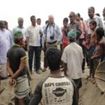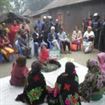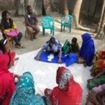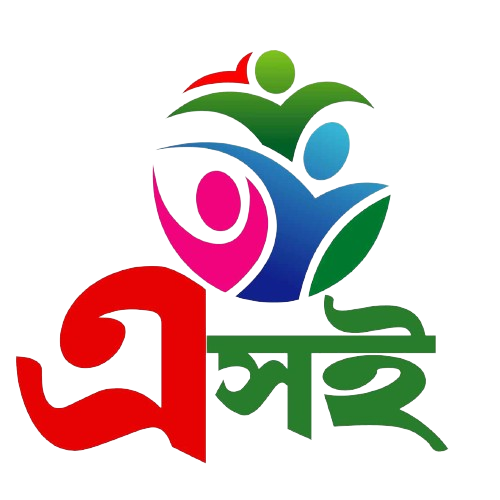| Project |
Bangladesh Flood Response Project |
| Started on (Date) |
1-12-17 |
| Phased out (Date) / Continuing |
30-9-18 |
| Funded by |
Aktion Deutschal and Hilft (ADH) |
| Implementing Partner |
World Vision Bangladesh |
| Working area |
Dewanganj and Islampur Upazilla in Jamalpur District |
| Goal and Objectives |
Immediate and inter-mediate needs of flood affected families and children in Jamalpur District of Bangladesh are met. |
| Key interventions |
- Immediate Response
- Activity for inter-mediate recovery
- Sustainable Rehabilitation
|
| Result of intervention |
- # Before disaster they can prepare
- # Wear and tear will be reduced ,
- # IGA will be increased
- # Migration will be decreased ,
- # Knowledge and facility will be increased about WASH & Nutrition
|
| Project outcome |
Output-1. The vulnerable population has access to WASH and Nutrition .
Output-2. Road and Communication system with in the affected area is reconstructed.
Output-3. The target population has increased knowledge on climate resilient income options and health & nutrition practices. |
Impressive photographs (Project Image):



| Project |
Resilience through Economic Empowerment, Climate Adaptation, Leadership and Learning-REE-CALL 2021 |
| Started on (Date) |
01 October 2017 |
| Phased out (Date) / Continuing |
31 March 2021 |
| Funded by |
OXFAM |
| Implementing Partner |
OXFAM |
| Working area |
Baksigonj & Dewanganj Upozilla in Jamalpur District. |
| Goal and Objectives |
By 2021 vulnerable women, men and institutions in rural areas are more resilient to social, economic and climatic shocks and stresses
Objectives:
- Women, men, their families and communities have benefited from sustainable and equitable economic activity.
- Government, communities & civil society have driven sustainable & inclusive climate action & DRR through collective effort.
- Duty bearers and lawmakers have developed policies and demonstrated practices that better incorporate the interests and rights of marginalized people and communities
|
| Key interventions |
- # Organize and further scaling up of dairy, maize, crab,
- # Organize value chain actors /entrepreneurs around sunflower, beef , ground nut, pond fish and duck,
- # (Food bank), Establishment of food bank to enhance community based food security system,
- # Campaign for women economic empowerment,
- # Job fair at local level,
- # Awareness training (couple meeting) on reducing care work burden to redistributereduction and recognition of care work,
- # Demonstration of eco-friendly and climate adaptive agriculture technology,
- # Installation of Resilient and inclusive Deep Tube well
|
| Result of intervention |
- # Resilience community
- # CBO women leader and others women are encouraged to take lead in social activities
- # Community has identified their problems and become more aware on their vulnerabilities and capacities. Based on the findings they have developed plan for their development program and able to communicate with service providers
- # Women dignity is increased at their family level
- # Community level food storage practice building greater unity among poor people to face the crisis confidently
|
| Project outcome |
Outcome -1 : Economic justice and women empowerment
Outcome -2: Climate action, DRR and Resilience WASH
Outcome -3: Active citizenship, influencing and knowledge management |
Impressive photographs (Project Image):


| Project |
School feeding Program |
| Started on (Date) |
May’2015 |
| Phased out (Date) / Continuing |
June’ 2018 |
| Funded by |
Directorate of Primary Education of Bangladesh Government & WFP |
| Implementing Partner |
DPE and WFP |
| Working area |
MadarganjUpazila in Jamalpur District, (government Primary Schools 197, Ebtadayee Madrassas 07 and Primary Schools under ShishuKallayan Trust 01total 205 |
| Objectives |
-To increase enrollment and attendance of pre and primary School in the food insecure areas.
– To improve learning ability of the primary school children through deduction of micronutrient deficiencies.
-To enhance GoB Capacity to implement school feeding programme efficiently and effectively |
| Key interventions |
- # High energetic biscuits distribution,
- # Deworming tablets ensure uses to students,
- # Monthly and Quarterly meeting with teachers ,
- # Home visit for drop out students,
- # Courtyard meeting,
- # Vegetable garden in School,
- # SMC meeting
|
| Result of intervention |
- # Students attendance increased
- # Dropout is being reduced
- # Pass rate of students increased 10% than previous year
|
Impressive photographs (Project Image):


| Project |
Improving the Well-Being of Adolescents with an Emphasis on Ending Child Marriage |
| Started on (Date) |
September’17 |
| Phased out (Date) / Continuing |
September’18 |
| Funded by |
Unicef |
| Implementing Partner |
UnicefBangladesh |
| Working area |
Islampur and DewanganjUpazila under Jamalpur District |
| Goal and Objectives |
to end the child marriage |
| Key interventions |
- # Two-day basic training on community engagement and social mobilization for the Community Volunteers, Upazilla Coordinators and District Coordinator
- # Day-long orientations on ECM for the community leaders
- # Basic training/refresher for IPT groups on script, character, delivery and costume
- # Day-long orientations for the selected school teacher on Menstruation Hygiene Management
- # Organize IPT shows
- # Establish/Inaugurate Adolescent Friendly Health Services Corners
- # Local level campaigns on ending child marriage
- # Court yard Meeting/ Counseling
|
| Result of intervention |
- # By 2020, families and communities have strengthened capacity to support improved and equitable development of adolescent girls and boys and protect adolescent rights, with a focus on ending harmful social practices and uptake of new behaviours.
- # By 2020, adolescent boys and girls from selected communities are engaged to develop capacities as agents of change and facilitate action to eliminate harmful social norms and practices with a focus on ending child marriage.
|
| Project output |
Output 1: By August 2017, 64,510 people of Islampur and Dewanganj have enhanced capacities for the well-being of adolescents’ with a focus on ending harmful practices and up taking new behaviors.
Output 2: 36,280 adolescents from 180 communities of Islampur and Dewanganj have strengthened capacities and engaging communities for the well-being of adolescents with a focus on ending child marriage.
Output 3: Effective and efficient programme management
|
Impressive photographs (Project Image):


| Project |
Improved Institutional Responses to Children in Contact/Conflict with the Law (IIRCCL)Project |
| Started on (Date) |
January 2016 |
| Phased out (Date) |
December 2019 |
| Funded by |
European Union |
| Implementing Partner |
Aparajeyo Bangladesh (AB) |
| Working area |
Jamalpur |
| Objectives |
Ojective- 1. Protect the rights of children during arrest, detention and trail. It will do so by establishing Child welfare Desks in police stations and providing legal representation.
Objective -2. Divert Children away from arrest, detention and imprisonment, where it is in the best interests of the child and promote rehabilitation by promoting community mediation through Child Welfare Committees and establishing a bail supervision and support scheme and rehabilitation and reunification programme .
Objective 3 . Lobby the government for juvenile justice reform and the replication of models of good practice developed. |
| Key interventions |
- Monthly meeting with CWC,
- Training of CWC,
- Training of Police officers on children act 2013,
- Children Diverted through CWD,
- Children reunified with families,
- Children Diverted through CWC,
- Lawyer’s Panel Monthly meeting
|
| Result of intervention |
Result 1: 4575Children picked up by the police for petty and status offences will have been released without charge and referred to Aparajeyo to access rehabilitative services, leading to a reduction in their risk of coming into contact with the law again and experiencing abuse within the juvenile justice system. By diverting these 4575 children the project will reduce the likelihood of them becoming stigmatized, re-offending, and being exposed to criminalization, neglect, abuse and exploitation whilst in detention
Result 2: 125 children charged will have received a fair trial leading to a reduction in unsafe convictions, disproportionate and custodial sentences and exposure to abusive situations
Result 3: 1,450 children at risk of coming into contact with the law and who are in contact with Community Welfare Committees (CWCs) will access community rehabilitative services. |
Impressive photographs (Project Image):



| Project |
Micro Credit Program |
| Started on (Date) |
1994 |
| Phased out (Date) / Continuing |
On going |
| Funded by |
Since 1994 to 2000 CORDAID-Netherlands then Own fund |
| Implementing Partner |
UnnayanSangha has been implementing individually |
| Working area |
Jamalpur and Sherpur districts |
| Goal |
To provide financial support to organize poor people with specific rules and regulation and the ensures sustainability of UnnayanSangha . |
| Key interventions |
- # Group Formation& Meeting
- # Savings Collection
- # Loan disbursement & collection
- # Homestead gardening
|
| Result of intervention |
- # Formed 541 groups
- # Unity among groups increased
- # Members knowledge on socio-economic issues improved
- # Group initiatives increased
- # Income of group members increased
|
| Project outcome |
- # Women’s have been involved IGA,
- # Homestead gardening has been increased,
- # All children go to School,
- # Child labor has been decreased
|
Impressive photographs (Project Image):


| Project |
Housing Project |
| Started on (Date) |
1994 |
| Phased out (Date) / Continuing |
On going |
| Funded by |
Housing Fund of Bangladesh Bank |
| Implementing Partner |
Bangladesh Bank |
| Working area |
Jamalpur district |
| Goal and Objectives |
To ensure housing facilities for poor households |
| Key interventions |
- # Household selection for housing support
- # Orient household head for constructing house
- # Loan disbursement
- # Follow up of house construction
- # Realize loan from the borrowers
|
| Result of intervention |
- # All the selected households have constructed their houses
|
Impressive photographs (Project Image):




| Project |
US-Child City |
| Started on (Date) |
July-2016 |
| Phased out (Date) / Continuing |
On going |
| Funded by |
Own fund |
| Implementing Partner |
UnnayanSangha has been implementing project individually |
| Working area |
Jamalpur |
| Goal and Objectives |
- #To make scope of the amusement of people especially children
|
| Key interventions |
|
| Result of intervention |
- # People especially children are being enjoying recreation
- # Physical and mental growth of the children improving
- # Mental satisfaction of other people is being increased
- # Scope of employment created
|
Impressive photographs (Project Image):



| Project |
Chars Livelihoods Program (CLP) |
| Started on (Date) |
2005 |
| Phased out (Date |
2016 |
| Funded by |
DFID&CLP |
| Implementing Partner |
UnnayanSangha(US) |
| Working area |
IslampurUpozila in Jamalpur District |
| Goal and Objectives |
To Improve the Livelihoods of over one million extreme poor households living on Island chars in north western Bangladesh |
| Key interventions |
- # Primary health care & family planning services
- # Social development group formation & development ,
- # ensure timely checking, counseling to pregnant and lactating mother,
- # IFA tablets distribution for pregnant, lactating mother & adolescent girls,
- # Assets purchase and assets transfer,
- # cattle rearing,
- # Training on homestead gardening,
- # training on local verity poultry rearing,
- # distribution of poultry feed,
- # plinth raising,
- # Installation of new Tube Well with platform,
|
| Result of intervention |
Improved awareness of people on their rights like-gender equity, health-hygiene, education, family planning, bad effect of early & multiple marriage, disaster preparedness and management, birth & marriage registration, water and sanitation, social ties and others socio-environmental issues. As a result they have been communicating with different GO-NGO and Private Service providers/facilities to get necessary services, financial capacity, nutritional status, education status of their child and overall health status have been increasing. |
| Project outcome |
The chars people especially the beneficiaries have been living safely than before in their homesteads with homestead vegetable gardening, plantation of food trees, using of water sealed latrine, tube-well for safe drinking water and social safety net, which increases their livelihoods security.
|
Impressive photographs (Project Image):




| Project |
Development of community support system to improve maternal and neonatal health and accelerating progress to end child marriage |
| Started on (Date) |
2011 |
| Phased out (Date |
2016 |
| Funded by |
Unicef |
| Implementing Partner |
Unicef Bangladesh |
| Working area |
All Upozila in Jamalpur&Sirajgonj District |
| Goal and Objectives |
“Reduction of maternal and neonatal mortality and morbidity in Sirajganj and Jamalpur districts with an emphasis on equity issues to achieve MDGs 4 and 5”. |
| Key interventions |
- Birth planning, ANC, PNC, Counseling session conduction by CHVs with PWs and other family members,
- # Identification and referral of complicated PW and newborn by CHVs
|
| Result of intervention |
- Increased awareness about MNH in the community and increased demand as ANC, PNC and referral to the appropriate facilities with support of CG and CHV
- CG members are aware to conduct meeting regularly for look after the CC performance
- Increased referral from community to facility and CG are want to know what’s situation of referred mothers/ patient from the authority
- Local Govt. Institutions (UP,Upazila) expand their hand to support for facility repair maintenances and follow up CHV activity at field level
- CG’s are taken role for maintaining proper office time to the facilities and field level
Every CC generated fund for meet up emergency need as assist to poor mother and newborn |
| Project outcome |
- # Trained 3300 CHV
- # Increased normal delivery by SBA ,
- # Increased Birth planning,
- # Good relationship with Health & Family Planning
|
Impressive photographs (Project Image):




| Project |
South Asia WASH Results (SAWR) Program |
| Started on (Date) |
March’15 |
| Phased out (Date) |
June’ 2017 |
| Funded by |
DFID |
| Implementing Partner |
WSUP Bangladesh |
| Working area |
1.Jamalpur, 2.Sherpur, 3. Mymensing, 4.Netrokona, 5. Kisorgonj, 6. Norsiongdi, 7. Gazipur |
| Objectives |
To promote hygiene awareness and practices |
| Key interventions |
- # Coordination meeting with Head Teachers and UEOs,
- # Distribution of hand washing posters to disseminate reinforce So5 messaging,
- # Supports mother’s group sessions in the schools’
- # Support to Celebrate Annual Sports of School,
- # Soap campaign,
- # Conduct assessments in schools to identify needs and provide low cost hand washing devices,
- # Learning sharing workshop of little doctors,
- # Exchange visit of little doctors,
- # Field visit of GoB personnel
|
| Result of intervention |
- # They have been practicing hand washing with soap in regular basis,
- # Strengthen health clubs,
|
| Project outcome |
- Cordial support to school authorities make ensure smooth implementation programme activities
- Concern GOB Official involvement helps the smooth implementation of the programme activities
- Skilled Little Doctor Group
- WASH practices
|
Impressive photographs (Project Image):



































